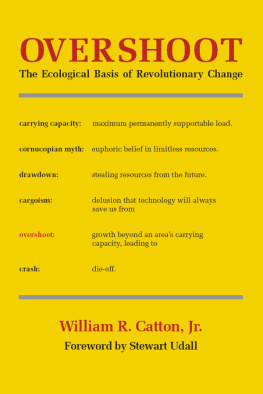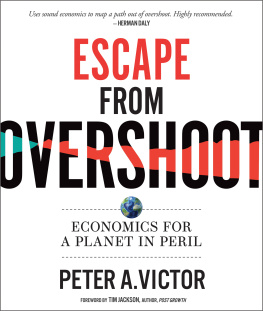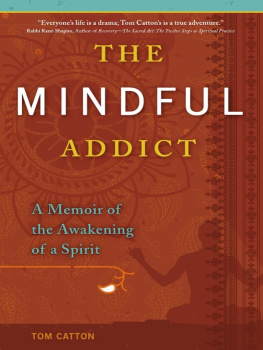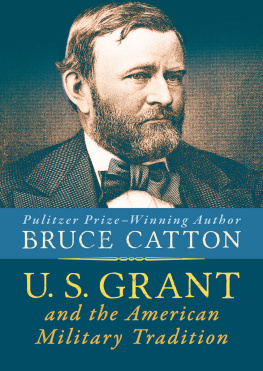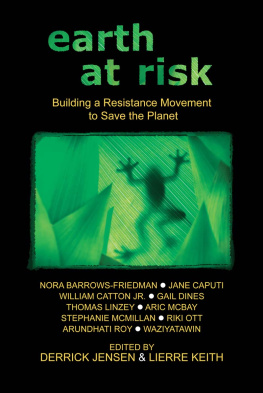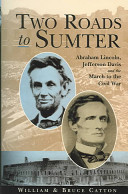William R. Catton - Overshoot, The Ecological Basis of Revolutionary Change
Here you can read online William R. Catton - Overshoot, The Ecological Basis of Revolutionary Change full text of the book (entire story) in english for free. Download pdf and epub, get meaning, cover and reviews about this ebook. year: 1980, publisher: University of Illinois Press, genre: Romance novel. Description of the work, (preface) as well as reviews are available. Best literature library LitArk.com created for fans of good reading and offers a wide selection of genres:
Romance novel
Science fiction
Adventure
Detective
Science
History
Home and family
Prose
Art
Politics
Computer
Non-fiction
Religion
Business
Children
Humor
Choose a favorite category and find really read worthwhile books. Enjoy immersion in the world of imagination, feel the emotions of the characters or learn something new for yourself, make an fascinating discovery.

- Book:Overshoot, The Ecological Basis of Revolutionary Change
- Author:
- Publisher:University of Illinois Press
- Genre:
- Year:1980
- Rating:5 / 5
- Favourites:Add to favourites
- Your mark:
- 100
- 1
- 2
- 3
- 4
- 5
Overshoot, The Ecological Basis of Revolutionary Change: summary, description and annotation
We offer to read an annotation, description, summary or preface (depends on what the author of the book "Overshoot, The Ecological Basis of Revolutionary Change" wrote himself). If you haven't found the necessary information about the book — write in the comments, we will try to find it.
Overshoot, The Ecological Basis of Revolutionary Change — read online for free the complete book (whole text) full work
Below is the text of the book, divided by pages. System saving the place of the last page read, allows you to conveniently read the book "Overshoot, The Ecological Basis of Revolutionary Change" online for free, without having to search again every time where you left off. Put a bookmark, and you can go to the page where you finished reading at any time.
Font size:
Interval:
Bookmark:
carrying capacity:maximum permanently supportable load.cornucopian myth:euphoric belief in limitless resources.drawdown:stealing resources from the future.cargoism:delusion that technology will always save us from overshoot: growth beyond an areas carrying capacity, leading tocrash:die-off.
William R. Catton, Jr.
Foreword by Stewart Udall
OVERSHOOT
The Ecological Basis of Revolutionary Change
William R. Catton, Jr.
UNIVERSITY OF ILLINOIS PRESS
Urbana and Chicago
Illini Books edition, 1982
1980 by the Board of Trustees of the University of Illinois
Manufactured in the United States of America
P 8 7 6 5
This book is printed on acid-free paper.
Library of Congress Cataloging-in-Publication Data
Catton, William Robert, 1926
Overshoot, the ecological basis of revolutionary change. Includes index.
1. Human ecology 2. Social change I. Title GF41.C37 303.4 80-13443
ISBN 0-252-00988-6
Previously available in a cloth edition, ISBN 0-252-00818-9.
To the memory of my father.
In a future that is as unavoidable as it will be unwelcome, survival and sanity may depend upon our ability to cherish rather than to disparage the concept of human dignity. My purpose in writing this book has been to enhance that ability by providing a clear understanding of the ecological context of human life.
It is axiomatic that we are in no way protected from the consequences of our actions by remaining confused about the ecological meaning of our humanness, ignorant of ecological processes, and unmindful of the ecological aspects of history. I have tried to show the real nature of humanitys predicament not because understanding its nature will enable us to escape it, but because if we do not understand it we shall continue to act and react in ways that make it worse.
End-of-chapter notes are provided to document or clarify points about which readers may feel reasonable skepticism. A list of selected references is also provided at the end of each chapter to satisfy appetites for further knowledge which I trust the chapter content may arouse.
This book is dedicated to my father, for his awareness of the moral significance of the web of life whetted my concern and steadied my thinking. He lived life with fascination from 1895 to 1972a period of momentous change and splendid but tragic human achievement. I wish it had been possible to discuss the contents of these pages with him; he would have understood, Im sure, my reasons for writing. This book arose from thoughts engendered by a time of national shame and global troubles, when many Americans sought to work their way back to basic values. I have written with the conviction that my own experience gave me some advantage in comprehending the ecological foundations of our difficulties; my work, my family, the parts of the world I lived in, were such that I did not have to become preoccupied with the special grievances of one group toward another group. Thus I was not prevented from recognizing the similarity between the frustrations felt by each group and those experienced by its supposed adversaries. Moreover, my own exposure to population pressure, a major indicator of the common source of our mounting frustrations, has been sufficiently marginal and intermittent to permit me to see it in relief. Constant exposure to it would have prevented me (as it has prevented so many others) from seeing its real nature. Complete insulation from it would have precluded awareness and concern. Even with my advantageous situation, it took me years to see what I was looking at.
As is always the case, my eventual attainment of insight was immensely assisted by many other minds (including some I have never met in person, as well as many friends). In addition to the authors cited at the ends of the chapters or quoted at the beginnings of the six parts, various influences by the persons mentioned below are gratefully acknowledged.
It was when I sat in on lectures by my former colleague, Fred Campbell, now chairman of the department of sociology at the University of Washington, and engaged him in many conversations, that I came to see the extreme sociological cogency of ecological principles to which I had first begun to be sensitized in a non-academic but most enlightening contextwilderness areas in national parks.
As the ideas I have set forth in this book were coming into focus, I had the benefit of some very stimulating discussions with various individuals in the fields of forest ecology and management of wildland reserves. I should particularly acknowledge C. Frank Brockman, professor emeritus of forestry, and David R. M. Scott, professor of forestry, University of Washington, and a number of national park administrators in New Zealand, especially Mr. R H. C. Lucas, then Director of National Parks and Reserves, Mr. Gordon Nicholls, Supervisor of National Parks, and Mr. J. H. Taylor, Assistant Supervisor for Interpretation. None of these persons, of course, should be assumed to agree fully with the direction my thought has since taken, or with my conclusions.
The undergraduate and graduate students in my classes in human ecology at universities in New Zealand and in the United States have helped my thinking become clearer by their patient endurance of its maturation, and by their challenging questions and counter-arguments.
Development of my understanding of the ecological paradigm has been enormously aided by the opportunity for unusually congenial and mutually enlightening collaboration with Riley E. Dunlap, associate professor of sociology at Washington State University, in the writing of a series of papers pertaining to environmental sociology.I am indebted to the following persons for offering suggestions or critical comments on various portions of various versions of the manuscript (and again, there is no implication that any of them wholly concurs with my views): Charles E. Bowerman, professor emeritus of sociology, Washington State University; Robert E. L. Faris, professor emeritus of sociology, University of Washington; Dr. J. A. Gibb, Director, Ecology Division, Department of Scientific and Industrial Research, Wellington, New Zealand; George A. Knox, professor of zoology, University of Canterbury; Peggy Koopman-Boyden, senior lecturer in sociology, University of Canterbury; William R. Lassey, professor of rural sociology, Washington State University; Gerhard Lenski, professor of sociology, University of North Carolina; Armand L. Mauss, associate professor of sociology, Washington State University; Peter J. McKelvey, professor of forestry, University of Canterbury; J. Milton Yinger, professor of sociology, Oberlin College.
I am also indebted to John M. Ward well, associate professor of sociology, Washington State University, and to my sons Stephen and Philip, for reading the entire manuscript in semi-final form, commenting critically and extensively, and encouraging me to finish it and publish it.
I would like to thank Ann Lowry Weir for her expert editing and Stewart L. Udall for contributing the Foreword.
Above all, I am abundantly grateful to my wife, Nancy. She not only continued to make life personally rewarding, even with the world in conspicuous and disheartening disarray, but she also read and reread numerous drafts of chapter after chapter. She was enormously helpful to me by her continuing reluctance to accept ideas I could not put aside. She thereby kept me confronted with the tenaciously exuberant predispositions of citizens of a post-exuberant worldthe audience I have sought to reach.
by Stewart L. Udall
Font size:
Interval:
Bookmark:
Similar books «Overshoot, The Ecological Basis of Revolutionary Change»
Look at similar books to Overshoot, The Ecological Basis of Revolutionary Change. We have selected literature similar in name and meaning in the hope of providing readers with more options to find new, interesting, not yet read works.
Discussion, reviews of the book Overshoot, The Ecological Basis of Revolutionary Change and just readers' own opinions. Leave your comments, write what you think about the work, its meaning or the main characters. Specify what exactly you liked and what you didn't like, and why you think so.

